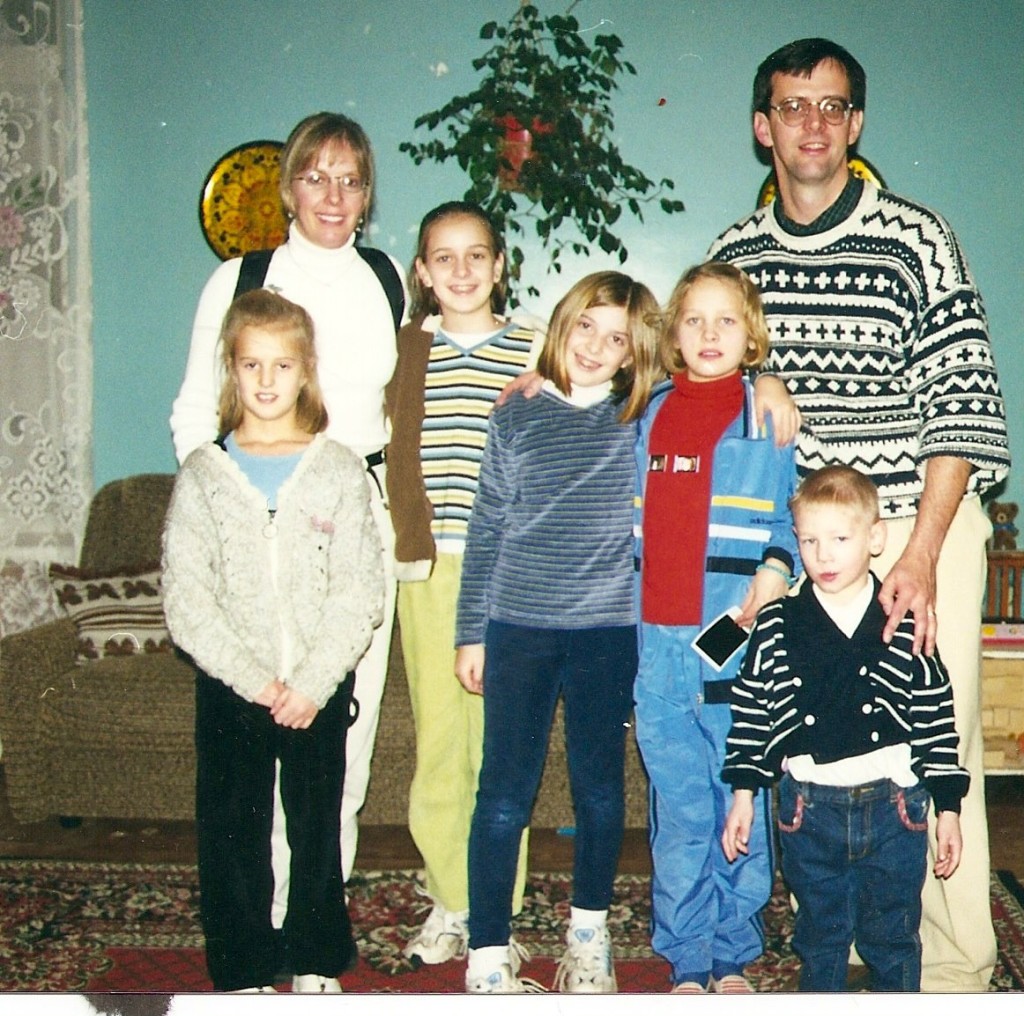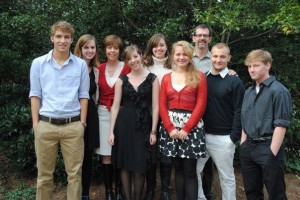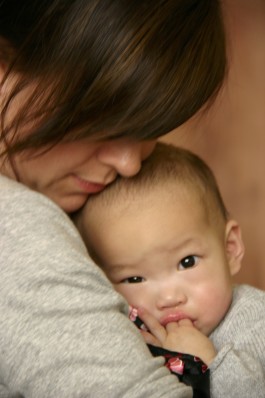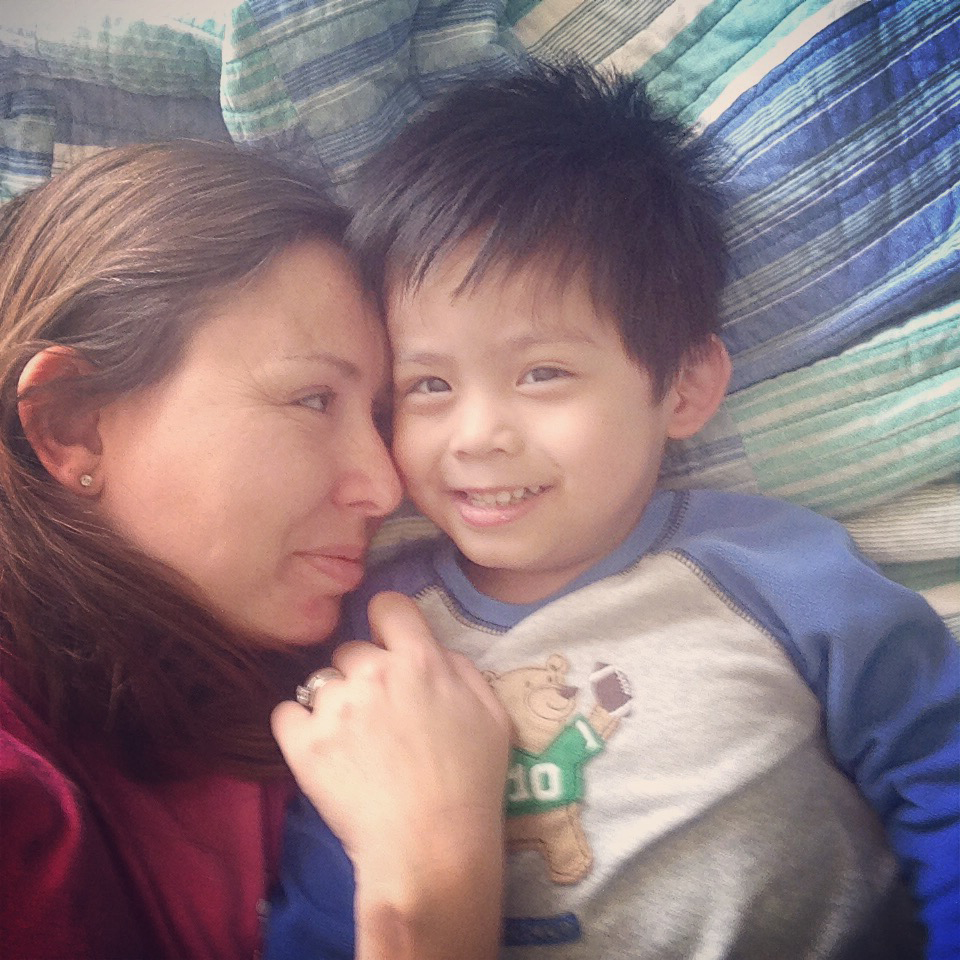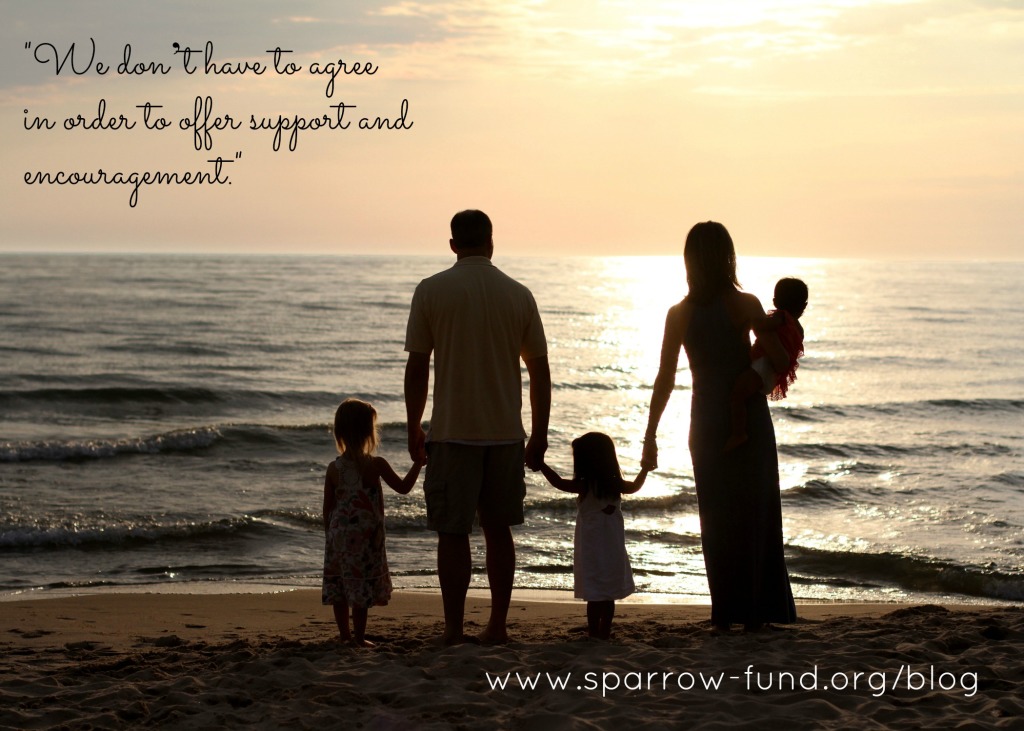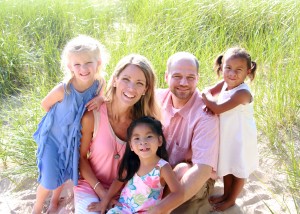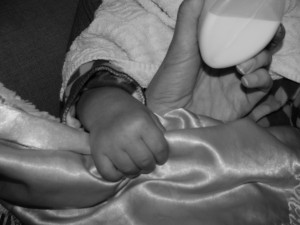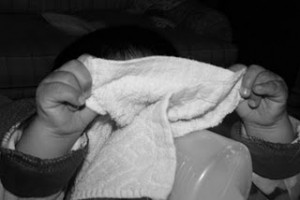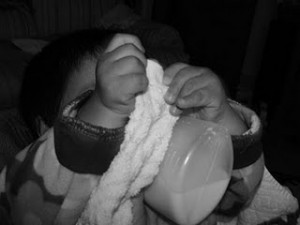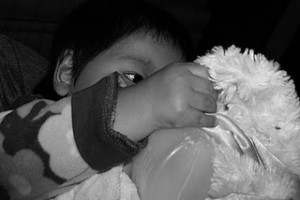“And I want Mommy to have a baby in her belly,” I overheard her say as I was walking up the stairs this morning. I stopped in the hallway outside her room just long enough to hear “but sometimes it takes a long long time for babies to come. You have to pray and pray and pray. And wait.”
My daughter delivered a five year-old summary of her mommy’s life.
Nate had been talking with them about Zechariah and Elizabeth. And, to Eden, Elizabeth was another one of those women – like Sarah and Mary … or her mommy – whose story reminded her that pregnancy must come at the hands of a miraculous God.
I’d never told her I want to be pregnant.
She wasn’t my “second choice”, and I didn’t trust her young mind to later process my desire alongside of her own story with a healthy perspective. She was too young to catch wind of her Mommy’s pain.
The first time I remember her mentioning it was after a playgroup where all the women, but two of us, were pregnant. Children built towers, played instruments and read books around their mothers who shared life-stories. Naturally the topic of pregnancy came up. And my little one, who has not yet lost the hyper-vigilance that is a survival mechanism for many orphans, absorbed every word.
Later, in her prayers, she asked God to “send a baby to her mommy’s belly.”
It initially hurt my heart.
I’ve been preparing to field questions and observations about how our family is different for years. I just didn’t expect the first of them to be about my personal scarlet letter. I anticipated that she’d one day feel the pang of our skins’ different colors and her unique entrance into our family, but I didn’t suspect she’d have this other difference on her radar.
While the things that make our family different don’t seem to be a struggle for her now, they may one day become more than observations. I could call it maternal instinct that makes me want to protect her from every potential hurt, every pain. But my heavenly Father’s instincts were different.
His protection came not from avoiding that which would cause pain, but for offering His companionship as I walked through it. The valley of the shadow of death is land claimed by the Father. It is a holy place.
For me. And for my daughter.
At five, she has lived years I want to erase, but that God will redeem. And then, as one grafted in to this family, she has inherited new opportunities for pain.
But the ground I’ve taken in my life and heart, as it relates to processing my lack, doesn’t need to be won over, again, by her.
Her inheritance comes (from God) through me. She is my legacy. What I win in my lifetime — in terms of a hopeful perspective on all He has allowed and joy in the midst of “setback” — she gets to live out.
Her words to Nate this morning were not pain-filled. Sure, something in her – I’m not quite sure even why – wants her mommy to be like the other mommy’s with babies in their bellies. She longs, in the way a five year-old has capacity to. But what she has come to know as commonplace Christianity has taken me years to receive:
You don’t always get what you want, but in the face of delay, you pray and pray and pray. And wait. Sometimes for a long, long time.
And in the meantime you worship the One who holds beauty.
My highest aim as a parent is not to try and protect my children from all that might befall them, but to, instead, seek the healing touch of Jesus in every area of my own life, knowing that they will inherit what I leave behind. The “unfinished” will be theirs to finish or to pass along. And those ashes subjected to beauty, will remain their crown.
At five, Eden doesn’t wonder if God will still be who she believes Him to be if, next month, Mommy isn’t pregnant. “God is good, He is so so good to me,” she sings as her bare feet dangle from the potty.
Bracing myself against the hits I fear might come from the Father is a distant memory. After many years of having my soil tilled and turned, the ground is supple to receive the God of Hope.
And because of His great mercy in my life, to save me from my fearfully expectant heart, my daughter receives new land on which to plant.
My freedom won is her inheritance to build upon.
The fullness of God I pray almost daily for in my own life, isn’t just my platform for the next age. It’s hers too.
And her daughter’s.
__________________________________
 Sara is a wife to Nate and a mother of five whose arms stretched wide across the ocean to Africa. After almost a decade of Christian life she was introduced to pain and perplexity and, ultimately, intimacy with Jesus. Her book, Every Bitter Thing is Sweet released October 7, 2014 via Zondervan, is an invitation — back to hope, back to healing, back to a place that God is holding for you—a place where the unseen is more real than what the eye can perceive. A place where even the most bitter things become sweet. She writes regularly at EveryBitterThingIsSweet.com.
Sara is a wife to Nate and a mother of five whose arms stretched wide across the ocean to Africa. After almost a decade of Christian life she was introduced to pain and perplexity and, ultimately, intimacy with Jesus. Her book, Every Bitter Thing is Sweet released October 7, 2014 via Zondervan, is an invitation — back to hope, back to healing, back to a place that God is holding for you—a place where the unseen is more real than what the eye can perceive. A place where even the most bitter things become sweet. She writes regularly at EveryBitterThingIsSweet.com.


